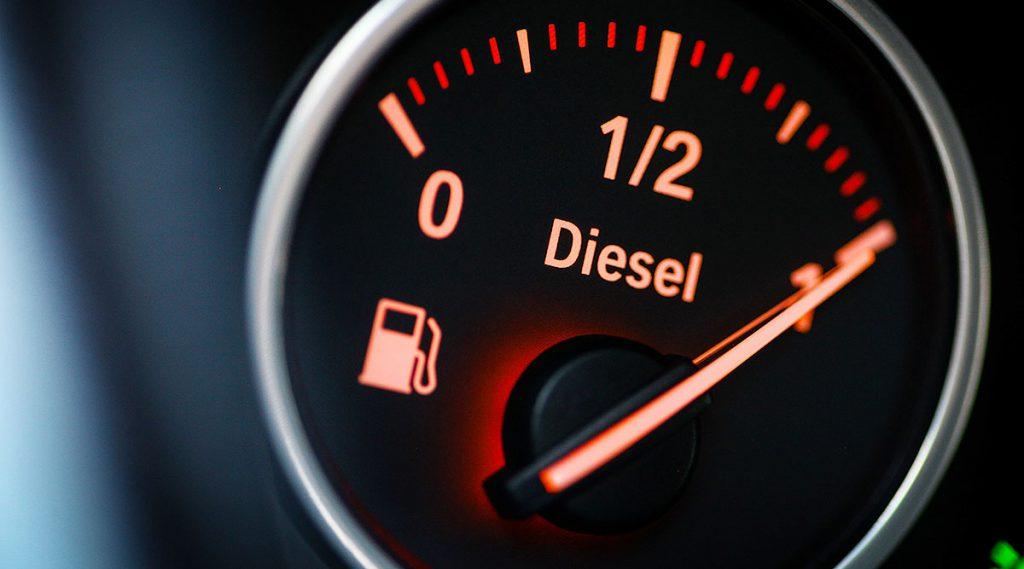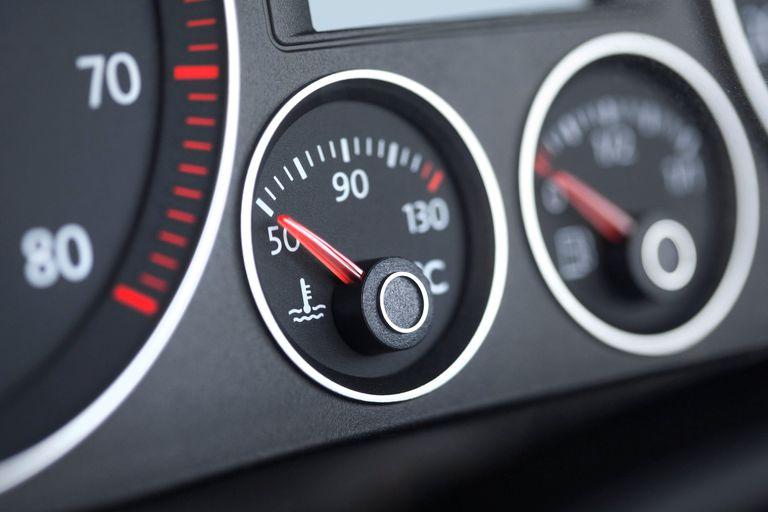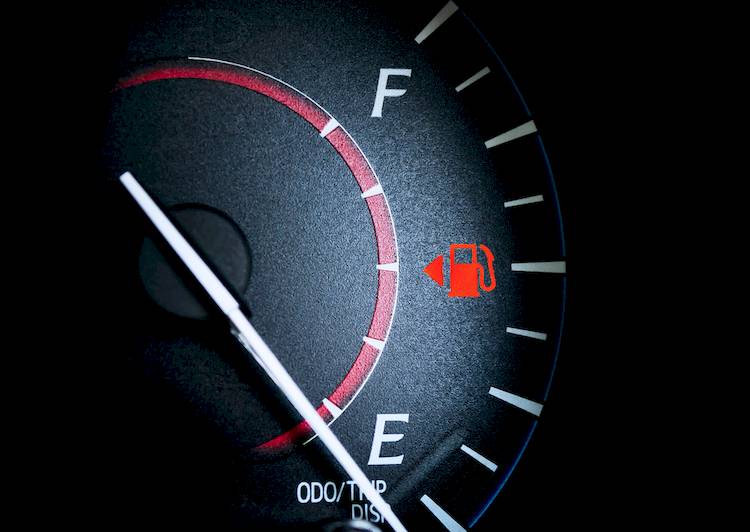Fuel gauge reading incorrectly does not affect the engine functions or create any major problem.
You can drive just fine without damaging any major component. But, not being able to read the correct gas level will result in running out of gas with no warning.
The functions of a fuel gauge are to show the amount of fuel in the gas tank and to give a warning when it’s time to refuel.
Driving with a low level of fuel causes many long-term consequences like clogging the fuel pump, overheating the engine, and premature wear of several engine parts.
Contents
Fuel Gauge Reading Incorrectly: What Went Wrong?
A vehicle’s gauge system comprises three basic parts: gauge, circuit, and sender. A fault in these parts will cause gauge failure or make it give incorrect readings. The four ways of how a fuel gauge can fail are:
1. Sending Unit Failure
The most common reason for a fuel gauge to not work. The gauge may read the voltage feedback from a dead sender as ‘Full’ or ‘Empty’.

SEE MORE:
The sending unit continuously moves and rubs on the variable resistor when you drive the car. The constant friction wears off the contacts, leading to its failure.
2. Problems with the Circuit
Depending on the source of the trouble, there could be a voltage problem in the fuel sender, causing the gauge to receive no voltage response from there.
Interruption in the ground for either the gauge or the fuel sender might cause the issue too. Other reasons could be corrosion or loose connections at the fuel pump module.
3. Gas Gauge Failure
A less common but not outright impossible reason. It could happen when the internal circuit is defective, shorted, or open.
There are 3 common issue with the gas gauge you should take a closer look at.
Problem #1: The gauge remains at the full mark even though you refueled a week ago and have been driving regularly. It’s not a sudden boost in fuel efficiency; it’s more likely an issue with the variable resistor.
This problem could stem from faulty wiring, an open circuit in the resistor, or in rare cases, a malfunctioning gauge.
Problem #2: The gauge is stuck on empty, despite knowing you recently refilled your tank (confirmed by your bank statement).
This issue typically arises from one of several causes: the float may have become detached from the metal arm, rendering it unable to provide fuel level information.
The variable resistor might be malfunctioning, or corrosion in the system’s wires could disrupt the information transmission.
Problem #3: The gauge fluctuates between full and empty seemingly without any pattern. Does it feel like you’re constantly guessing your fuel level?
This issue often results from the float getting stuck in place and then jolting back into motion due to the car’s movement, leading to erratic readings. Alternatively, a faulty gauge itself could be causing this inconsistency.
4. Non-Functioning Instrument Cluster
The least common of all causes and its repair is the most expensive. Most modern vehicles have a fully integrated circuit. So, when one part fails, the whole unit needs replacement.
How To Identify The Problems With A Fuel Gauge?
For amateurs, contacting a professional mechanic is the best option. But, if you have previous experience, it is easy to find out the issues with the fuel gauge reading incorrectly with these tools:
- A digital multimeter (DMM)
- An electrical wiring diagram (EWD)
- Basic hand tools
Carry out these following tests to identify the problem source of fuel gauge reading incorrectly.
Instrument cluster self-test: The procedure involves doing a series of tasks including switching the headlight on, pressing on the odometer button, etc.
The task sequence could be different for older vehicles. You need to check the owner’s manual to know the correct order.

Fuel sender test. Conduct the test when the tank is lower than half to avoid splashing hot oil. Use the multimeter to check for voltage on the pins, and it has to be 5 V or 12 V on one pin.
Gas gauge test. This inspection involves another voltage testing, and the reading has to be exactly the same as the fuel sender test.
FAQs
-
Can extreme temperatures affect the accuracy of a fuel gauge?
Yes, extreme cold or hot temperatures can impact the accuracy of the fuel gauge temporarily. However, the gauge should return to normal when the temperature becomes more moderate.
-
Is it safe to drive with a faulty fuel gauge?
It’s not recommended to drive with an inaccurate fuel gauge, as you may run out of fuel unexpectedly. It’s safer to rely on your odometer and refill your tank based on mileage until the gauge issue is resolved.
-
Why does my fuel gauge fluctuate while driving even when the tank is stable?
Rapid fluctuations in the fuel gauge needle while driving can be caused by a loose wire connection, a faulty gauge, or interference from other electrical components. It’s important to have it checked to ensure accurate readings.
-
How much does it cost to fix a fuel gauge reading incorrectly?
The cost of fixing a fuel gauge can vary depending on the root cause of the problem. It could range from a relatively inexpensive fuse replacement to a more costly sender unit or instrument cluster repair.
-
How often should I calibrate or check my fuel gauge for accuracy?
You don’t typically need to calibrate your fuel gauge manually. If you suspect it’s reading incorrectly, it’s best to address the issue as soon as you notice it rather than relying on regular calibration.
-
Can a fuel gauge reading incorrectly cause damage to my vehicle?
While a fuel gauge reading incorrectly itself may not damage your vehicle, it can lead to running out of fuel unexpectedly, which can cause inconvenience and potentially leave you stranded. It’s essential to address the issue promptly.
Check out this video from car PROblems to learn more about the most common causes of fuel gauge malfunctioning!
Conclusion
If you encounter any issues with your fuel gauge, such as fuel gauge reading incorrectly, it’s essential to address them promptly to maintain the accuracy of your vehicle’s fuel level readings and ensure a safe and hassle-free driving experience.



